Bachelor of Science (BS) in Electrical Engineering Degree
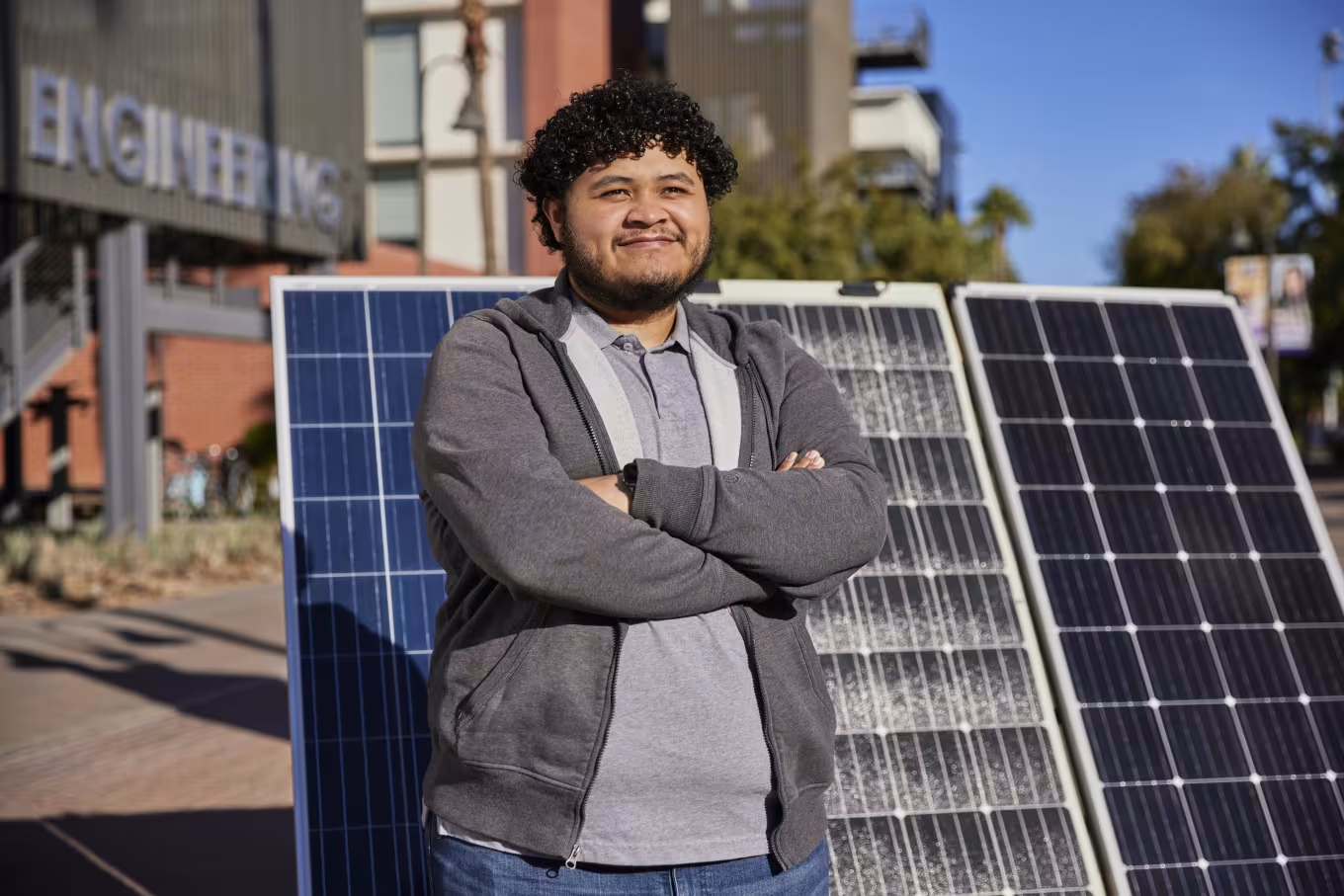
Bachelor of Science (BS) in Electrical Engineering Degree
journey today.
The Bachelor of Science in Electrical Engineering degree is an undergraduate program that provides a comprehensive foundational understanding in various specializations, including but not limited to electrical design, electronics engineering and signal processing.
The College of Engineering and Technology at Grand Canyon University aims to provide you with the necessary skills and knowledge for the ever-evolving field of electrical engineering. This program is designed to prepare you for the challenges of emerging technologies and encourage innovation in the field.
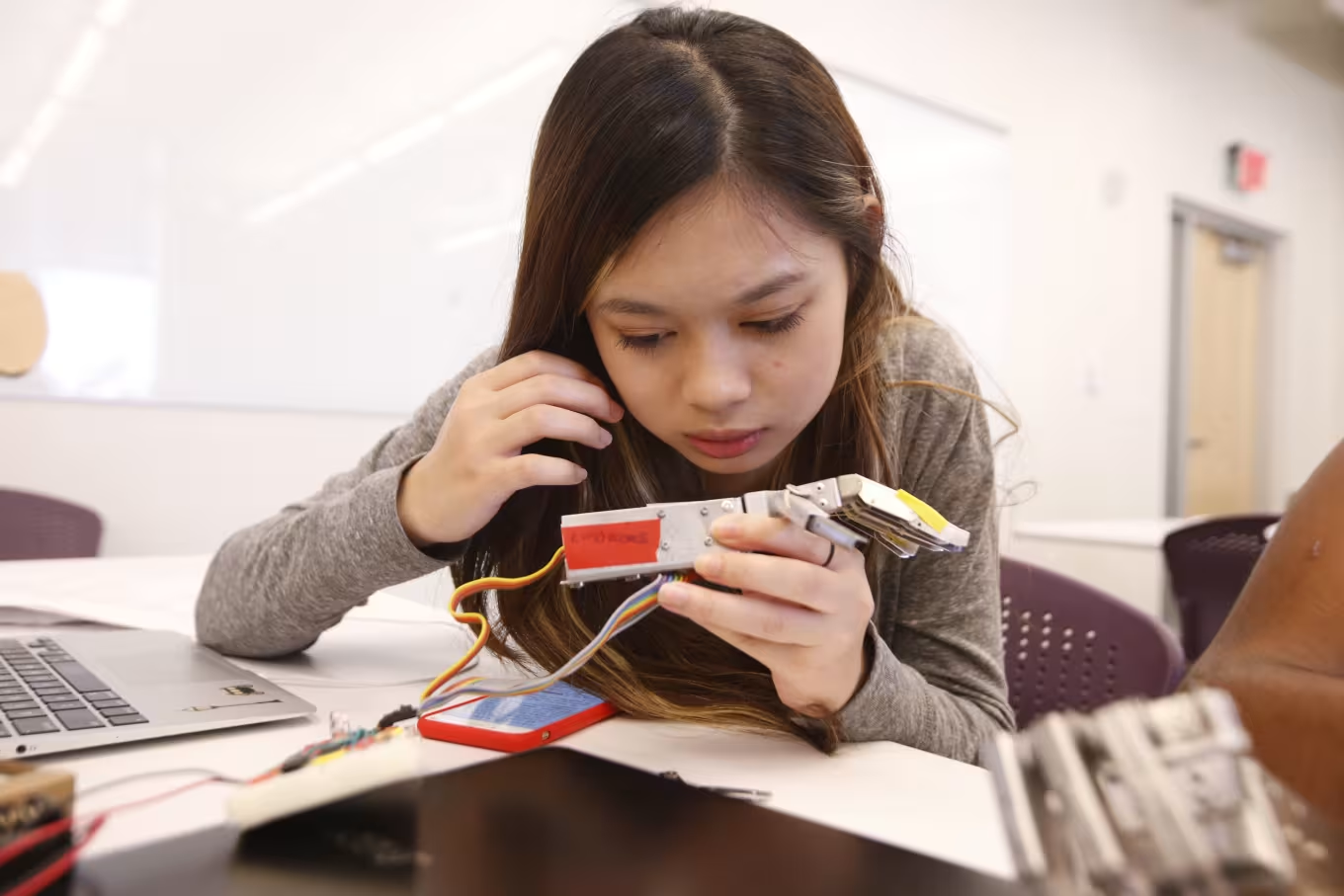
Bachelor of Science in Electrical Engineering
Campus: $8,250 per semester [More Info]
Up to 90 credits, only 84 can be lower division
Credits: Fill out the Lopes Eval to find out what will transfer
Admission Requirements (Bachelor's)
- 16+ years old
- High School Graduate
- 3.0+ Unweighted GPA
OR 2.5+ Unweighted GPA and
- ACT: 19
- SAT: 1000*
Admission requirements may differ based on degree level, program and modality, or transfer status. Some programs of study may require a higher GPA and/or other qualifying criteria for admission. Please review full admission and program requirements in the University Policy Handbook.
*Math and reading only on a 1600 point scale (test date after 3/1/2016). SAT score of 1380 required for 2400 point scale (test date before 3/1/2016).
The Bachelor of Science in Electrical Engineering is a multidisciplinary program, combining key facets of mathematics, chemistry and physics. The courses blend instructional knowledge with hands-on learning applications and practical project management. You will have the opportunity to learn circuits, electromagnetic fields, signals and systems.
Throughout your program and during project creation and development planning, you will likely be challenged with ethical decisions. GCU teaches Christian values and beliefs that reflect a commitment to integrity, compassion and accountability. As a private Christian university, these values can provide electrical engineering students with a framework for approaching ethical challenges in a way that is consistent with the Christian worldview.
Electrical Engineering STEM Labs
A unique benefit of being a GCU student is that you have access to our STEM labs, regardless of your major. In Fall 2022, GCU's 162,653 square foot engineering building housed 21 labs used for scheduled classes and nine additional labs used by students outside of their scheduled classes.
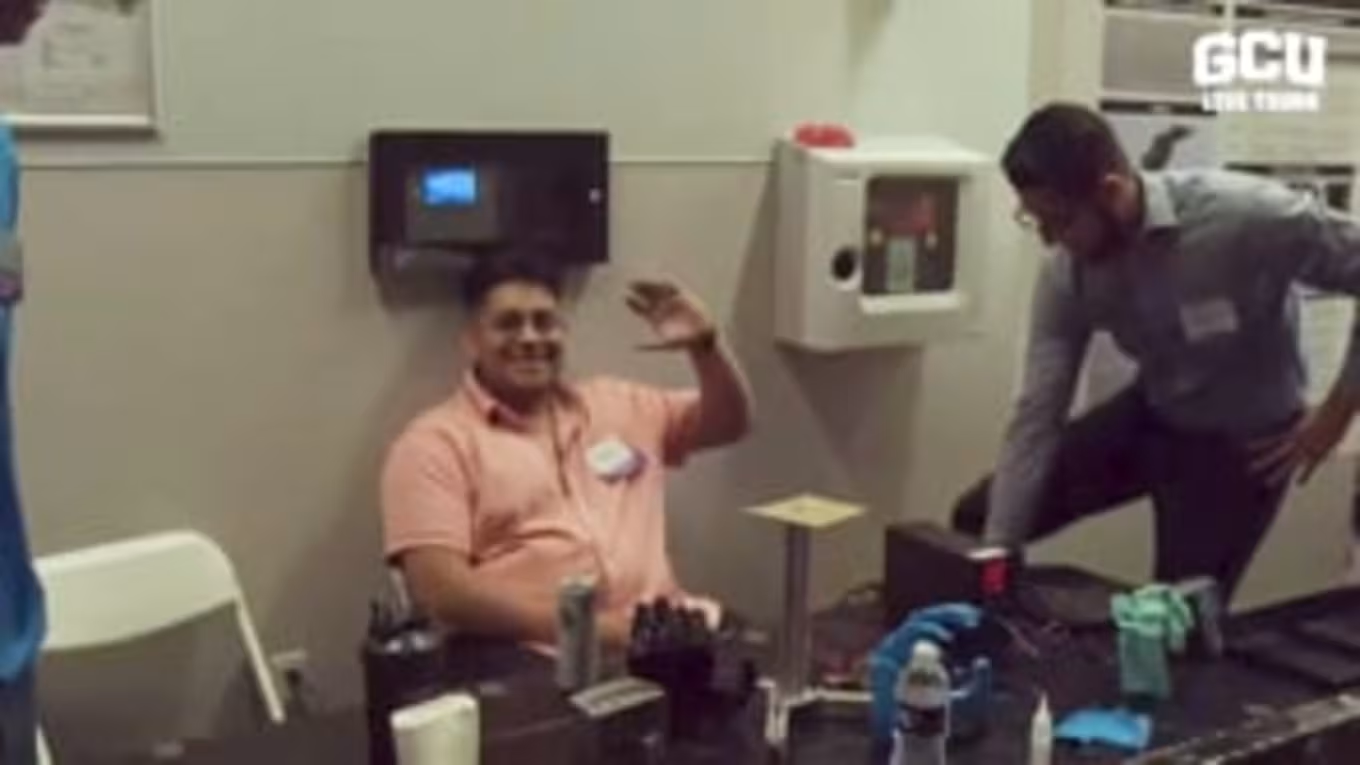

A degree in electrical engineering from GCU covers a wide range of topics, including circuit analysis, electronics, electromagnetics, digital systems and control systems. The curriculum is designed to provide you with a solid foundation in the fundamental principles of electrical engineering while also allowing you to specialize in a particular area of interest.
You will demonstrate your mastery of the field through a hands-on capstone project over the course of two semesters. You are tasked with exploring applied research and design projects in an area that interests you. Our capstone project embodies collaboration across the engineering fields that focus on bringing a team of engineers (electrical, mechanical, technology, etc.) together to create a comprehensive capstone project.
Electrical Engineering Students Master Electrical Skills and Principles
The bachelor’s in electrical engineering degree program guides you through a rigorous curriculum. You will develop a solid framework of knowledge in chemistry, physics and mathematics before diving into degree-specific courses. The program is designed to prepare you to be industry-ready, with hands-on experience in the design, implementation and maintenance of electrical systems.
In electrical engineering program courses, you will develop the following core competencies:
This intensive Bachelor of Science in Electrical Engineering degree program can prepare you for all branches of electrical engineering, including power, electronics, signal processing and telecommunications engineering. You can polish your problem-solving and critical thinking skills in the hands-on labs that are integrated seamlessly along with classroom lectures.
As a bachelor’s in electrical engineering degree student, you will work in collaborative groups to develop key project management skills necessary for the 21st century job market. The curriculum encourages students to develop professionalism, an innovative spirit, interpersonal skills and essential communication skills.
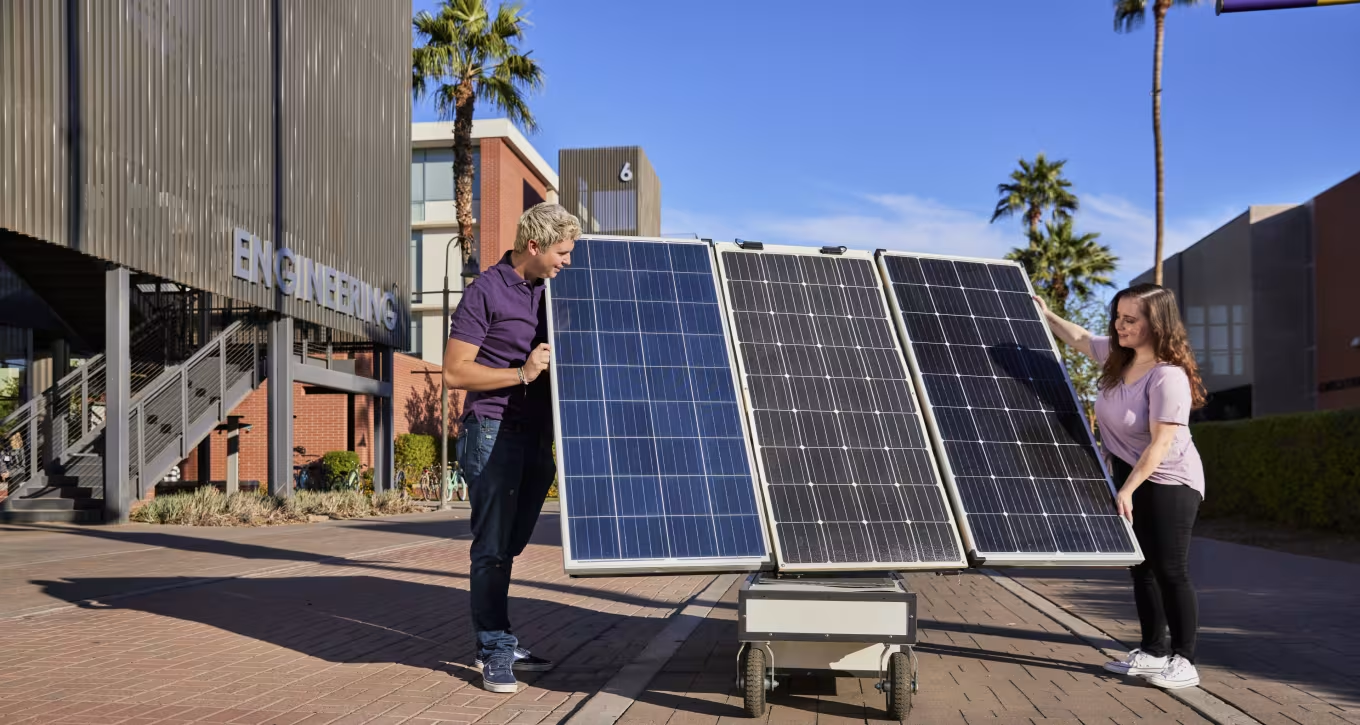
Careers in the Electrical Industry With a Degree in Electrical Engineering
Electrical engineering is a field that focuses on the study, design and application of electrical systems and equipment. It's a critical area of expertise for the modern world.
GCU can help prepare you for the electrical engineering field by providing a strong foundation in math and physics, offering several reputable accreditation clubs and extracurricular activities, potential internship and co-op opportunities and networking opportunities. In addition, specialty areas of electronic engineering are offered and may include digital and analog devices, radar and navigation systems, nuclear power or solar energy.
As a Bachelor of Science in Electrical Engineering graduate, you may pursue career opportunities that include the following:
Electrical Engineer Roles
As technology continues to advance, electronic engineers will be needed to design, develop and test new products and systems.
A qualified electrical engineer may pursue a number of different roles within these organizations and industries:1
Governmental agencies
Private engineering firms
Power generation
Telecommunications utility agencies
Semiconductor industry
Research facilities
15,800
Estimated number of new jobs for electrical and electronics engineers from 2022 to 2032.2
$109,010
Median annual wage for electrical and electronics as of May 2023.3
The BS in Electrical Engineering is accredited by the Engineering Accreditation Commission of ABET, www.abet.org, under the commission’s General Criteria and Program Criteria for Electrical Engineering.
GCU has held continuous institutional accreditation by the Higher Learning Commission since 1968. The College of Engineering and Technology shares the university’s commitment to upholding the principles and standards established by our accrediting bodies.
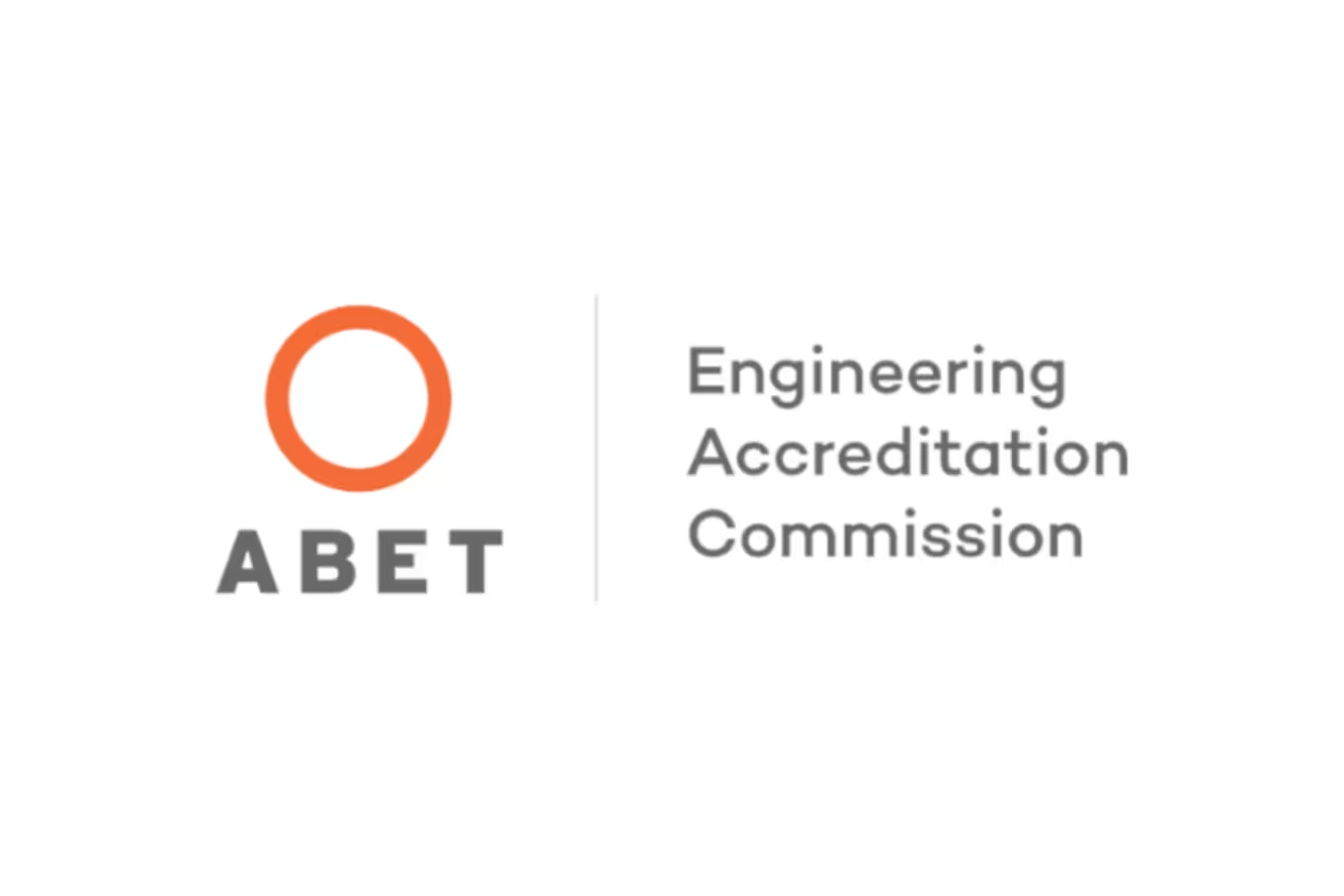
BS in Electrical Engineering Degree FAQs
If you're considering pursuing a degree in electrical engineering, you likely have some questions about what to expect. Here are some frequently asked questions about earning a BS in Electrical Engineering degree.
While all degrees face their own unique challenges, a bachelor’s in electrical engineering may be challenging due to its rigorous curriculum, high-level of math and crucial abstract thinking skills. With dedication, perseverance and a strong work ethic, you have the opportunity to complete a degree in electrical engineering.
Electrical engineers should have excellent abstract thinking skills because the elements of the project or system they work on are not always visible to the eye. Electrical engineering degree graduates have exceptional critical thinking and complex problem-solving skills, paired with active learning and patience to retest variables when projects don’t work. Additionally, thorough knowledge of trigonometry, calculus and non-linear math are excellent qualities of electrical engineers.
The timeline for completing a BS in Electrical Engineering degree can vary depending on individual factors such as course selections, academic progress and prior credits. Fill out the form on this page to speak to a university counselor to better understand how long it takes to earn your electrical engineering degree.
The cost of an electrical engineering program can vary depending on factors such as whether you are an online or on-campus student, whether you are a full-time or part-time student, and whether you are eligible for any scholarships or financial aid. It's important to note that tuition and fees are subject to change. To estimate the cost of tuition, visit our Tuition and Financial Aid page to use our Degree Program Calculator. Also, be sure to check with your university counselor for an accurate cost of this BS in Electrical Engineering degree.

Start Your Journey Today
Pursue your passion for engineering as you forge your purpose for the future. Apply for GCU’s Bachelor of Science in Electrical Engineering program today.
1 U.S. Bureau of Labor Statistics. (2024, April 17). Electrical and Electronics Engineers: Work Environment. Occupational Outlook Handbook. Retrieved on April 23, 2024.
2 COVID-19 has adversely affected the global economy and data from 2020 to 2022 may be atypical compared to prior years. Accordingly, data shown is effective September 2023, which can be found here: U.S. Bureau of Labor Statistics, Occupational Outlook Handbook, Electrical and Electronic Engineering, retrieved on April 23, 2024.
3 The earnings referenced were reported by the U.S. Bureau of Labor Statistics (BLS), Electrical and Electronics Engineers as of May 2023, retrieved on April 23, 2024. Due to COVID-19, data from 2020 to 2023 may be atypical compared to prior years. BLS calculates the median using salaries of workers nationwide with varying levels of education and experience. It does not reflect the earnings of GCU graduates as electrical and electronics engineers, nor does it reflect the earnings of workers in one city or region of the country or a typical entry-level salary. Median income is the statistical midpoint for the range of salaries in a specific occupation. It represents what you would earn if you were paid more money than half the workers in an occupation, and less than half the workers in an occupation. It may give you a basis to estimate what you might earn at some point if you enter this career. Grand Canyon University can make no guarantees on individual graduates’ salaries. Your employability will be determined by numerous factors over which GCU has no control, such as the employer the graduate chooses to apply to, the graduate’s experience level, individual characteristics, skills, etc. against a pool of candidates.
